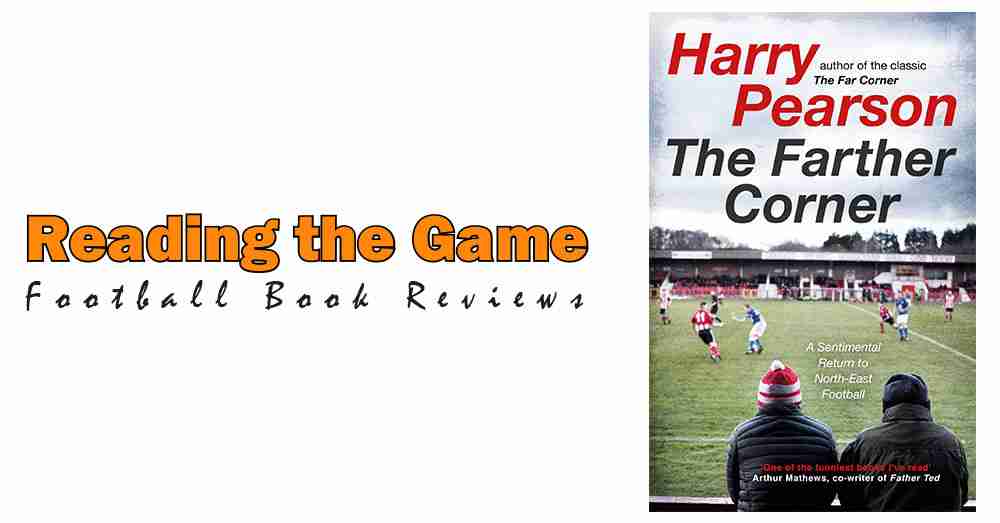Because I’ve not finished the book I’m reading at the moment (of which more next week), this episode of Reading the Game goes back in time, to the book which was right at the top of my Christmas List. The Farther Corner by Harry Pearson was the one title I was desperate to receive and so formed the focal point of what has become an important Christmas tradition in our house.
Every 25th December, once the kids have gone to bed, I settle in to a quiet, well-lit corner with a nice Rioja, something to nibble on and a book. I often get several, so the Christmas Night Read is always that special read I’ve been most looking forward to getting my teeth into. The Farther Corner was it, but could it possibly live up to my expectations?
In the mid-1990s, Harry Pearson’s The Far Corner took, to borrow the sub-title, “a mazy dribble through North-East football”. It was (and is) brilliant; funny, poignant and never, ever cynical; it is rightly regarded as a classic. It might have won the William Hill Prize, had it not been up against the equally remarkable My Father and Other Working Class Football Heroes.
Twenty-five years after his original odyssey, Harry Pearson spends another season observing the Beautiful Game in his home region. The Farther Corner is a work compiled during a difficult time in the author’s life and for his home region, which remains close to my own heart.
Older, perhaps a little more melancholic, but with his dry, observational humour undimmed by time, Pearson embarks on a new journey around the Northern League and all the competitions above it, creating a tale which is part memoir, part match report.
The matches, though, are only part of the point, in much the same way they are when you’re at the ground. I find that there is as much to enjoy in the rambling conversations to be had on matchdays, as there is in the play itself and so it is here; there are digressions, reminiscences, and dry humour alongside the recording of the high and low points of each match. At times, I almost felt that I was at the matches too, sipping a barely-drinkable instant coffee from a Styrofoam cup.
The characters we meet along the way are central to the story, not least because several of them pop up time and again. The people encountered during the season are depicted warmly and without ever being patronised; it is clear that the author holds all of the “recurring characters” in high esteem.
Similarly, this book treats all of the clubs it covers respectfully, without being reverential. There is joy in their presence and that there are games to watch and people to talk with. This is a proper football book, covering proper football clubs and the proper football people who keep them going.
And what a book it is. Harry Pearson is a brilliant writer and every sentence is beautifully constructed. The Farther Corner frequently made me laugh, but it also made me stop and think several times. There are vivid descriptions of the wastelands clubs often find themselves surrounded by as the region’s industries – both traditional and modern – have altered and contracted. Those descriptions had something of a visceral effect on me, but that might be because I have Teesside in my soul and have seen some of this for myself on trips back to the region.
The Farther Corner is not a smiley, ‘happy clappy’ sort of book, but I adored it. Reading it at a time when COVID-19 had prevented me from watching a match live for four months, it was a real tonic, because it triggered happy memories and reminded me of what I can look forward to once Step 4 football returns. Even the index is a source of joy.
The Farther Corner is one of the best football books I’ve read and is highly recommended. You can get it at Stanchion Books, who are an independent football bookshop, or from the shop run by When Saturday Comes magazine, which I’ve been subscribing to since 1996 and for which Harry Pearson writes a monthly column.
